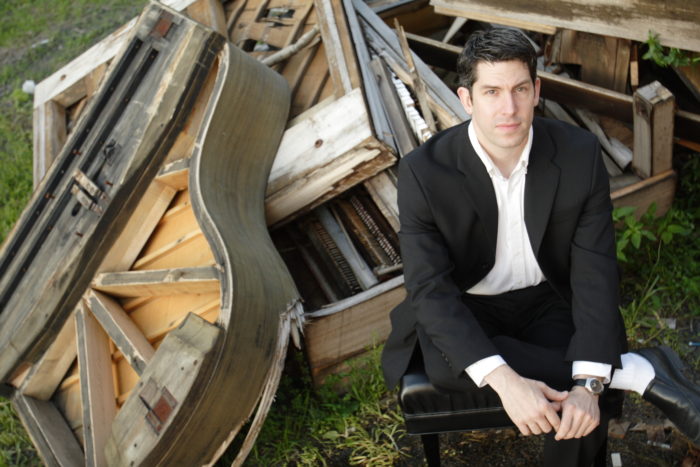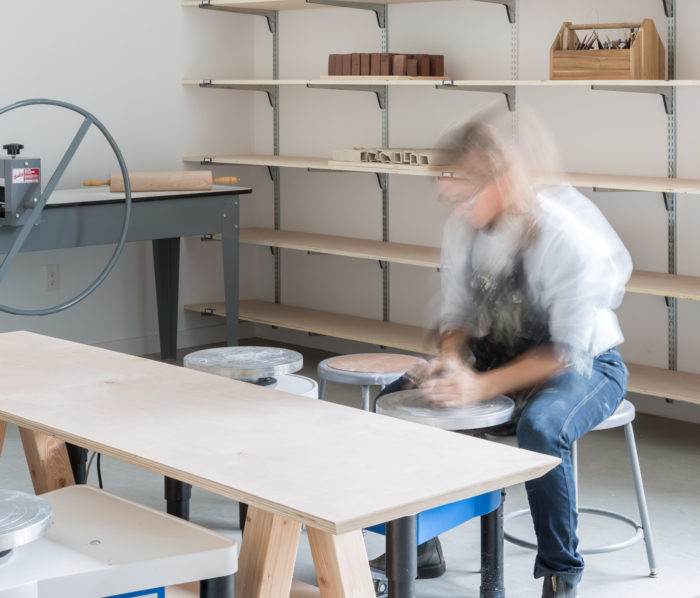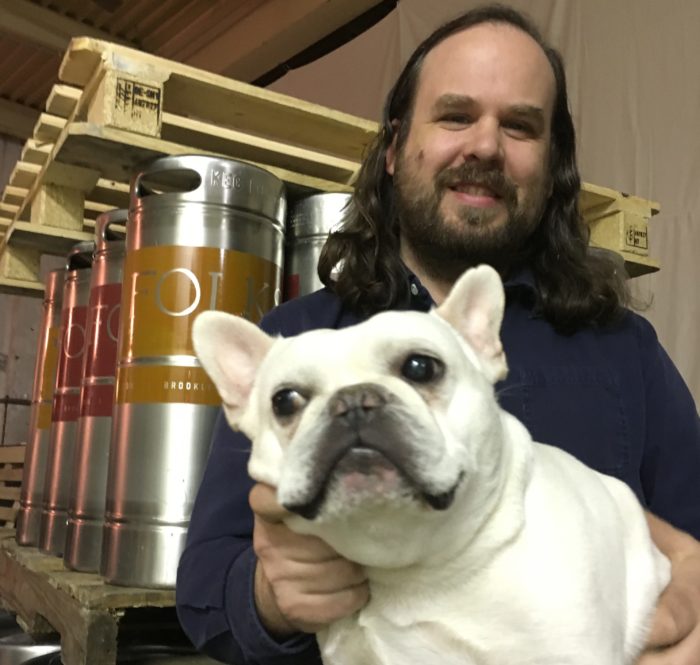10 Ways to Tame Your Startup Stress
How to challenge your fears, calm your nerves, embrace the long haul, and other advice from Brooklyn founders and experts
(Photo by Marcos Mesa Sam Wordley/Shutterstock)
Creating a new business from scratch isn’t easy: There are so many things to get right and so many things that can go wrong.
But it can be gratifying, provided you don’t let stress (read: panic attacks, sleepless nights, chronic self-doubt) get the better of you.
The Bridge spoke with three new Brooklyn business owners who have had their fair share of challenges, but have managed to keep their stress mostly in check. We also consulted with experts about tried-and-true techniques for stopping unwanted angst in its tracks.
And no, we won’t be telling you to do yoga, but yes, we will be telling you to take deep breaths.
Here’s how to keep your sanity in check, while making your new venture a success.
1. Understand that stress is not always the enemy…
No, really. A moderate amount of stress is actually good for you. Stress can help you feel energized, focused, and even more social. This is important, because the more you choose to see stress as helpful, the less likely your health is to suffer. Researchers have found, for instance, that when your heart is racing and you react negatively by saying to yourself this is awful!, your blood vessels constrict. But when you learn to say, Eh, it’s just my body having a reaction, your vessels take the hint and stay relaxed. Health psychologist Kelly McGonigal explains this phenomenon in her excellent TED talk, How to Make Stress Your Friend. “The next time your heart is pounding from stress,” McGonigal tells viewers, “think to yourself, this is my body helping me rise to the challenge.”
2. ...but watch for long-term problems
That said, if stress becomes chronic and starts to affect your emotional or physical health, take heed. Signs that your anxiety is out of hand: your personality changes (you’re snapping at your partner, best friend, or dog), your body is breaking down (you can’t sleep, your stomach aches, your migraines are more intense than ever), or your mind can’t stop catastrophizing (I’m a failure, an idiot, a total fraud). “Sometimes people are not even aware how stressed out they are, but then their bodies start to react,” says Williamsburg-based therapist Julia Baum, who specializes in working with entrepreneurs and creatives. “Some of my patients come in with stomach issues that have been plaguing them for years.” So what do you do? You move on to the steps below.
3. Take care of your main asset: you!

Adrian Cohen, founder of KeyLab, a music education studio (Photo by Suzanne Kowala)
This is where we could talk about yoga and meditation. But we won’t mention, ahem, how good they can be for your peace of mind, even in small amounts—because you know that already. Instead, we will say this: if you are running a business and you are not in good physical and mental shape your business will suffer—and you wouldn’t want that, would you? So try to get a bit of exercise each day, take a few moments to feel grateful each evening, eat well, and don’t drink too much. Adrian Cohen, founder of Keylab, a music education studio in Carroll Gardens, keeps his cool by taking bike rides and walks through Red Hook, Brooklyn Bridge Park, Prospect Park, and Park Slope while listening to music or podcasts. “This has become my go-to way to unwind and reconnect with feeling positive and inspired. I get outside of my normal headspace and the day-to-day grind, and I always feel rejuvenated.”
4. Tend to your nervous system

(Photo by Sean824/iStock by Getty Images)
Chronic worry can keep you in constant state of fight or flight. To restore equilibrium get in the habit of practicing slow and controlled breathing, which can lower your anxiety levels, ASAP. Try this: breathe in slowly to the count of 5, pause, breathe out slowly to the count of 5. Repeat 3 times. Better, right?
5. Challenge your wildest fears
Your cash flow is low, and your spirits are lower. Your mind is careening into a dark place. Don’t go there. Ask yourself: “What am I telling myself that is making me feel anxious? Is it the truth? Is it the whole truth?” suggests Baum. Keep challenging your thoughts until you can see where your anxiety is coming from. You might, for example, realize that your underlying fear is that if your business fails, you will be a failure as a human being. “Entrepreneurs tend to associate self-worth with success,” says Baum. She helps her patients recognize that their value comes from infinite factors—not just the rise and fall of their enterprise.
6. See problems as opportunities

Jennifer Waverek in action at BklynClay (Photo by Eric Petschek)
When Cohen’s studio was burglarized, he knew he had to shore up his security system to prevent an even worse episode. When Jennifer Waverek, co-founder of the pottery studio BklynClay, and her partner were not seeing eye-to-eye, she realized they had to learn to communicate differently. Rather than getting tripped up or discouraged by the obstacles, see them as opportunities to make your business stronger. What’s more, “when you keep solving problems, you build your confidence,” says Travis Kauffman, founder of the Folksbier Brewery in Carroll Gardens.
7. Refer to your original plan
There will be times, many of them, when you feel lost. This is when you pull out your business plan. If you don’t have one, then write down what your business is and a timeline for each stage of development. “Having a good business plan helps you make your concept as cohesive as possible and that planning removes the stress of the unknown,” says Kauffman. “If you get lost, you have a road map. It also helps you make better decisions and lets you know when you’re off the path.”
8. Create community
“The human brain isn’t built to thrive in isolation,” says Peter Shallard, who has branded himself The Shrink for Entrepreneurs. New business owners in lonely environments (sitting at the kitchen table day after day) often “find themselves sinking into bad mental habits of second guessing themselves, hesitating on making important decisions and other kinds of self sabotage.” Reach out to former colleagues, attend networking events (the Brooklyn Chamber of Commerce and Technical.ly Brooklyn are good sources), or find a co-working space. Says Shallard: “Resist the urge to think of yourself as a Batman-ish character, working on your thing in your bat-cave, waiting to unveil it to the world.”
9. Embrace the long haul

Travis Kauffman, founder of Folksbier Brewery, with Wiz (Photo by Lesley Alderman)
When you get discouraged, put one foot in front of the other and keep going. The one quality successful entrepreneurs share is the “willingness to face incredibly steep learning curves and continue trying to build their companies in the face of uncertainty,” says Shallard. Adds Kauffman: “There’s no eureka moment. It’s more of a marathon.”
10. Rest on your values
Remind yourself daily why you started your business. “There has to be a payoff for what you are doing,” says Waverek, who takes great pride in the beautiful and functional pottery studio she has created for her local community of potters and hobbyists. Kauffman, who has a degree in computer art from the School of Visual Arts and designed much of the artwork for his business, says “the artist part of me is into making something beautiful. And making the beer community a better place.” Cohen says, “I have great staff and teachers, and our families and students are fantastic. It’s the part of the job that makes everything worth it in the end.”
More about the entrepreneurs:
Adrian Cohen: Founder of Keylab, an innovative music studio in Carroll Gardens, which offers private and group lessons to children and adults.
Travis Kauffman: Founder of Folksbier Brewery, maker of old-fashioned lagers and ales using New World technology, located in Carroll Gardens (visit their new tasting room, open Thursday-Monday).
Jennifer Waverek: Co-founder, BKLYN Clay—an elegantly designed ceramics studio for potters and hobbyists located in Greenwood Heights. The studio features the first community gas kiln in Brooklyn.













